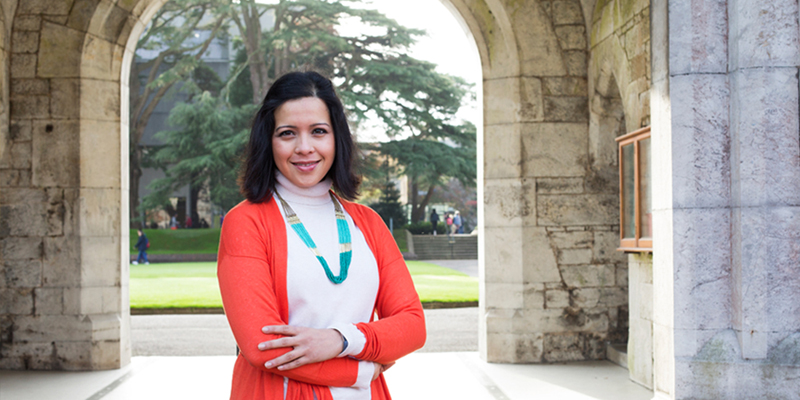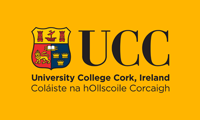News
APC Researchers Seed Sustainable Education In Developing Countries

APC Researchers Seed Sustainable Education In Developing Countries
Contributed by Yensi Flores and Mark Tangney
A team of academics from University College Cork braved riots and tear-gas to encourage sustainable education amid political unrest in Honduras.
Their remarkable story has been published in a peer-reviewed academic journal, and it is hoped that their efforts may now form a template for aiding sustainable educational development in impoverished countries.
The years-long journey began in 2015 when Yensi Flores Bueso, a new UCC PhD student from Honduras, wondered if she could help out her alma mater – the National University of Honduras (UNAH).
Honduras is one of the poorest countries in Latin America and among the most affected in the world by climate change. Thousands are fleeing northwards and risking their lives to escape lack of opportunities, violence, and political and social instability.
Yensi arrived at UCC a year earlier on a scholarship through the Academic Mobility and Inclusive Development of Latin America (AMIDILA) Erasmus Mundus project to pursue a Masters.
During her studies in Cancer Research@UCC, funded by the Irish Research Council and APC Microbiome Ireland, Yensi learned of the significant potential of the emerging field of synthetic biology – the engineering of biological systems to create useful products.
She realised this field could lead to the creation of products which could be conceived and developed by scientists in developing countries with minimal budget and infrastructure, which could in turn provide solutions to major health or environmental problems in Latin America.
Yensi initially sourced surplus molecular biology lab equipment and consumables from Cancer Research@UCC and APC Microbiome Ireland.
Knowing the cost of transporting the equipment would be prohibitive, Yensi contacted Fyffes plc who donated the transport and assumed responsibility for logistics to deliver the equipment through to the UNAH campus.
However sourcing and transporting the equipment proved to be just half the battle.
On a visit home, Yensi saw that the equipment was lying in the UNAH lab unused. Upon further discussion with local researchers, she learned that they while they could easily learn how to use the equipment, they did not know why they should use it. The problem lay in a lack of fundamental education in how to perform scientific studies, due to the absence of local research activity.
To address this, Yensi engaged her PhD supervisor Dr. Mark Tangney.
“Yensi’s extensive engagement and feasibility assessment with locals made us realise that what we needed to do was design a strategy that would seed relevant teaching and learning in Honduras, in a manner that would become sustainable locally, via development of a self-perpetuating course.” Mark said.
Cliona Maher, UCC’s International Strategy Officer for Latin America, suggested applying for EU Cooperation for Development funding to further the project. Yensi, Mark and Cliona secured an EU Erasmus + International Credit Mobility (ICM) grant to fund the training activity.
The resulting scheme included the delivery of a short and intensive hands-on course at UNAH. Yensi and three other researchers from Mark’s lab – Sidney Walker (APC Microbiome Ireland-funded), Ciarán Devoy and Stephen Buckley – travelled to Honduras and delivered the course to 20 participants spanning UNAH students, lecturers, researchers and officials from the Honduran health and biodiversity government offices.

Proceedings did not run entirely smoothly.
“Riot police fired tear gas at protesters. We were caught in the middle, with course students and instructors becoming bathed in tear gas, halting course activity for some hours,” said Yensi. Two weeks later, four protesters were shot on campus.
Graduates of the course were supplied with reproducible teaching and laboratory materials so that they in turn can go and teach the course to others, which is now happening both in Honduras and other Latin American countries.
“It’s a contagious course” said Mark.
These participants are now leading innovative SynBio projects aimed at fostering research, innovation and/or protecting biodiversity. While the receipt of laboratory equipment proved of no value in isolation, the subsequent training of the course participants in how to use the equipment and for what it is useful, unlocked its value.
The journey culminated in a science & society article being recently published in EMBO Reports.
“The article describes our personal story of our ‘awakenings’ in the realities of biotech practical education for students and teachers in a developing country, and our journey in designing and testing a sustainable strategy suitable for use in the field.” according to Mark.
“It was only when faced by obstacles that range from absurd to amusing that we learned to appreciate the problems endured by researchers in low-income countries, who, despite of all the barriers, are eager to pursue research.” said Yensi.
Cliona describes the experience as “enriching for both Internationalisation at Home and fostering Global Citizenship for both universities and their community partners. It is a great example of how Erasmus funded programmes can positively impact bi-regional Latin American – European cooperation”.
Original article
Seeding sustainable education in developing countries; Teaching biotech in low‐income areas
Jensi Flores Bueso & Mark Tangney EMBO Rep (2020)21:e50587 https://doi.org/10.15252/embr.202050587


